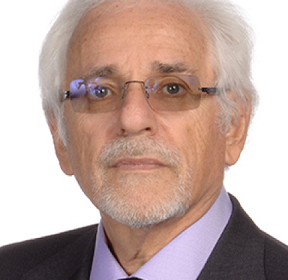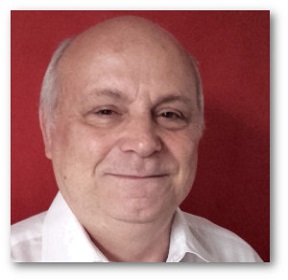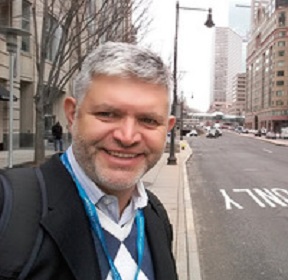Keynote Forum
Kenneth Serota
CanadaTitle: The Psychological effects of the COVID-19 pandemic among dentists: An evaluation of perceived stress, psychological distress and coping strategies
Abstract:
Given the unprecedented existential challenges of the SARS-CoV-2 pandemic on health care professionals (HCPs) worldwide, it is essential to monitor, examine, and understand the ongoing consequences and determine structured mitigation efforts for their short- and long-term control. We investigated the background of perceived stress among dental health care professionals (DHCPs) and identified risk factors contributing to perceived stress because of the COVID-19 crisis. We further sought to determine the hierarchy of coping management strategies which would prove most effective in mitigating the stress and psychological distress ensuant from the psycho-disruptions of the pandemic. Licensed dentists who were members of the Hungarian Dental Association were invited to answer an electronic test battery. Data pertaining to general demographic and dental related variables was electronically collected from 182 dental practitioners. Income and financial status were included among the general demographic individual and contextual variables, and aerosol propagation among the dental related variables. Factor analysis was used to ascertain COVID-19 related perceived stress. Distress manifested as impulsiveness, lack of interest in social connections, emotional disengagement, mood swings, and acknowledgment of emotional exhaustion because of the pandemic. Financial status, number of years in practice and the feeling that not even the strict compliance with professional rules can fully resolve the issues caused by aerosol propagation significantly predicted the level of perceived stress, while age, financial status and the feeling that not even the strict compliance with professional rules can fully resolve the issues caused by aerosol propagation significantly predicted the level of perceived distress.The randomization of the data controlled the relevant confounding factors pertaining to perceived stress because of contagion from aerosols and financial insecurity. Years spent in dental practice and age were protective factors against perceived stress. Physical activity and socialization were found to be the primary stress management strategies used to sustain and/or enhance mental health. Addressing the resolution of financial concerns, engaging in practice management revisions, and involvement with the implementation of infection control measures were perceived as being more useful than mindfulness and volunteering, techniques that are typically associated with behavioral psychotherapy for stress management. The findings suggest the need to develop support systems and include stress management education in the curricula of health care institutions, and as a component of continuing professional education programs, to foster positive mental health coping management strategies for HCPs.
Biography:
To be clear, I am not a researcher. I undertook this project after interviews with colleagues at the outset of COVID for clinial purposes. However, the discussion invariably redirected to their concerns for their careers, their fears about being infected, the effect on their family and their levels agitation, angst and depression. By chance this turned into the pursuit of a PhD in this area. In spite of literally no research background outside clinical dentistry, the effort is going remarkably well.
Bernard Mayer
FrancceTitle: A new framework for the treatment of dissociative states through Functional Dissociation
Biography:
Bernard Mayer has many years of expertise in the treatment of simple and complex psychotrauma and dissociative states in his psychotherapy practice in Paris. President and founder of the IETSP: www.ietsp.com and co-founder of the AFPJ :www.pierrejanet. org , he is the creator of the Integrative Body-Mind Psychotherapy / TICE, certified practitioner in EMDR for more than 30 years, in Somatic Experiencing and Hypnosis. Member of the ESH, ESTD, he speaks at various conferences and symposiums in France and abroad on request. - It is a new psychotherapy which allows to reach the somatic and emotional unconscious memories (subcortical zones) which contain "the frozen memory of the trauma", the words are not enough, nor even the analysis... Moreover, amnesia is a central symptom of psychotrauma. It is a non-verbal and non-cognitive therapy that acts directly on the neurophysiological level and frees the blocked memories of the trauma It is a Psychotherapy and a Neuro-therapy
Title: A Brazilian Experience in Treating Borderline Personality Disorder Patients in a Specialized Academic Outpatient Clinic on the Outskirts of the City of São Paulo
Abstract:
Personality Disorders are a current challenge for health professionals, as well as for patients, family members, social groups and society as a whole. The evolution of knowledge and research in neuroscience, associated with the contributions of modern psychotherapy and treatment techniques, have brought professionals to a more optimistic view of these disorders, especially for Borderline Personality Disorder (BPD). Until recently, patients with this diagnose were considered extremely difficult to treat and with poor prognosis. However, in recent years, there has been a paradigmatic shift regarding the evolution and treatment for BPD. The accumulated knowledge of genetic, epigenetic and neurobiological factors that determine personality development, from temperament to character constitution, provided a greater understanding of the factors involved in the etiology and evolution of BPD. The experience of working with a population marked by economic and social vulnerabilities, in the suburbs of a megalopolis like São Paulo, associated with medical education and training of psychiatric residents, brought us important insights into the long-term follow-up of patients with severe BPD, considering the difficulties in relation to a scarce multidisciplinary team and therapeutic resources. The author aims to provide an academic landscape regarding the Santo Amaro Medical School outpatient clinic experience for severe patients with BPD, the main techniques for case management and the psychopharmacological treatment for this population.
Biography:
A Brazilian Experience in Treating Borderline Personality Disorder Patients in a Specialized Academic Outpatient Clinic on the Outskirts of the City of São Paulo Graduation in Medicine in 1998, Santo Amaro Medical School (Santo Amaro University - “UNISA”) - São Paulo - Brazil. Following academic training in Psychiatry at Santa Casa Medical School (2001) with Certification from Brazilian Psychiatric Association (2003). Has clinical experience in Preceptorship with residents and was Assistant Psychiatrist and Professor of “Medical Psychology” at Santa Casa de Misericórdia de São Paulo Medical School until 2011. Current Professor of Psychiatry at Santo Amaro Medical School; Chief Psychiatrist of Bipolar Disorder and Personality Disorder Programs: Santo Amaro Medical School. Has Clinical Experience in Private Practice since 2001.



